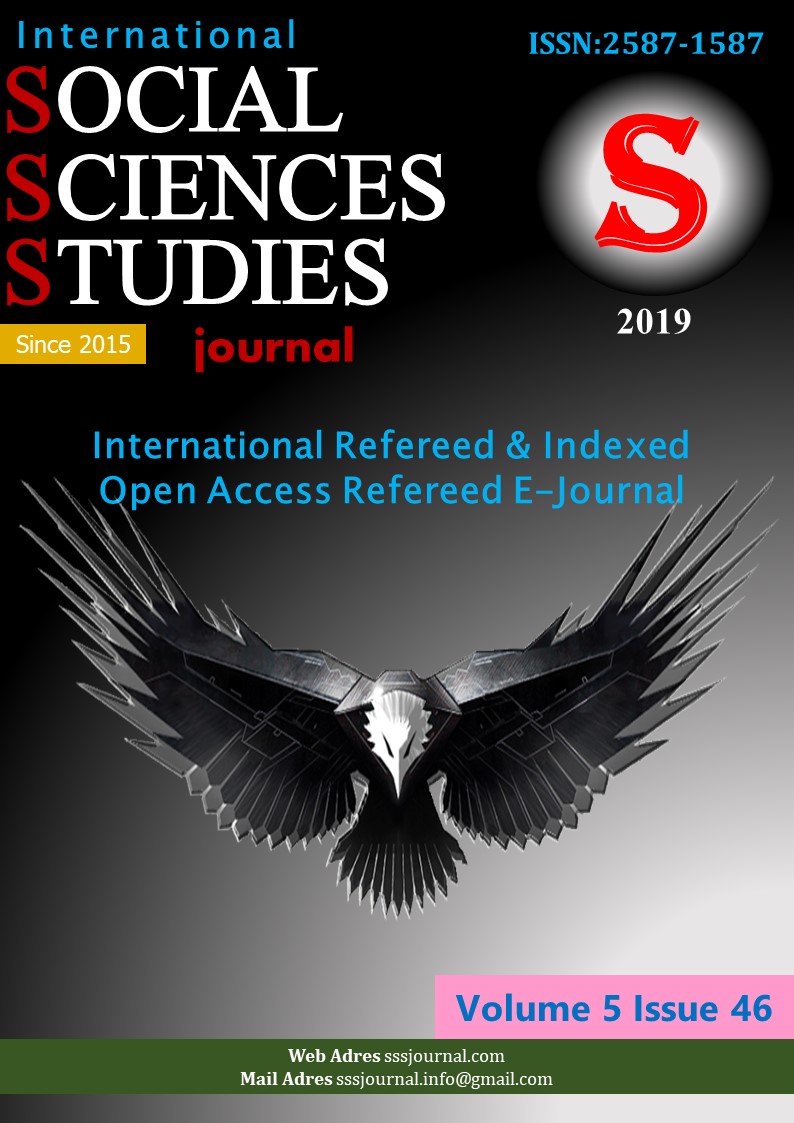Turkey’s Reservations On Multilateral Convention To Implement Tax Treaty Related Measures To Prevent Base Erosion And Profit Shifting (“Multilateral Instrument” Or “MLI”)
Author :
Abstract
OECD’s BEPS project is one of the major steps toward a new era in international taxation. This 15-step project revealed several deep issues in existing international taxation system. While OECD provides possible solutions and recommendations to fight these issues, it is highly unlikely to achieve sustainable results without changing existing bilateral tax treaties. Since changing these treaties would be a burden globally, the last action plan of BEPS project introduces a multilateral convention, which will co-exist with the existing tax treaties and will host all the new developments arose from the project. Multilateral Instrument (MLI) is a comprehensive document which includes necessary provisions to eliminate problems in international tax field. While some articles of MLI can not be reserved, some others provide options to jurisdictions to choose from or can be opted-out entirely. To understand how MLI will affect both international and domestic tax law of a jurisdiction, it is necessary to investigate said jurisdiction’s MLI position which includes preliminary list, reservations and notifications provided by this jurisdiction. Within this study firstly the scope and the structure of MLI will be explained. As the second part, this study aims to investigate Turkey’s reservations and the reasoning behind them.
Keywords
Abstract
OECD’s BEPS project is one of the major steps toward a new era in international taxation. This 15-step project revealed several deep issues in existing international taxation system. While OECD provides possible solutions and recommendations to fight these issues, it is highly unlikely to achieve sustainable results without changing existing bilateral tax treaties. Since changing these treaties would be a burden globally, the last action plan of BEPS project introduces a multilateral convention, which will co-exist with the existing tax treaties and will host all the new developments arose from the project. Multilateral Instrument (MLI) is a comprehensive document which includes necessary provisions to eliminate problems in international tax field. While some articles of MLI can not be reserved, some others provide options to jurisdictions to choose from or can be opted-out entirely. To understand how MLI will affect both international and domestic tax law of a jurisdiction, it is necessary to investigate said jurisdiction’s MLI position which includes preliminary list, reservations and notifications provided by this jurisdiction. Within this study firstly the scope and the structure of MLI will be explained. As the second part, this study aims to investigate Turkey’s reservations and the reasoning behind them.
Keywords
- Ateş, L. (2019). “Çekincelerin Sonuçları”, International Tax Law Conference on “Current Affairs of
- Ateş, L. (2019). “Çekincelerin Sonuçları”, International Tax Law Conference on “Current Affairs of International Taxation, IFA Turkey, 26.04.2019, Istanbul (Oral Presentation).
- Baker, P. (2015). “The BEPS Project: Disclosure of Aggressive Tax Planning Schemes”, Intertax, 43 (1): 85-90.
- Bosman, A. (2017). “General Aspects of the Multilateral Instrument”, Intertax, 45 (10): 642-659.
- Brauner, Y. (2018). “International Approaches to BEPS: What is BEPS?”, Fifth International Tax LawConference on “Prevention on Base Erosion and Profit Shifting (BEPS) in Taxation: Policy, Law and Action, 27.11.2015, (Ed. Billur Yaltı), Beta Publishing: 37-69.
- Brauner, Y. (2018). “McBEPS: The MLI – The First Multilateral Tax Treaty that Has Never Been”,Intertax, 46 (1), 6-17Brooks K.&Krever R., (2015), “The Troubling Role of Tax Treaties”, Tax DesignIssues Worldwide, Series on International Taxation, 51, (Ed. Geerten M. M. Michielse & Victor Thuronyi) Kluwer Law International: 159-178.
- Broe, L.& Luts, J. (2015). “BEPS Action 6: Tax Treaty Abuse”, Intertax, 43 (1): 122-146.
- Debelva, F.& Mosquera, I. (2017). “Privacy and Confidentiality in Exchange of Information Procedures: Some Uncertainties, Many Issues, but Few Solutions”, Intertax, 45 (5), 362-381.
- Hidalgo, G.&Sánchez, A. (2017). “Reflections on Multilateral Tax Solutions in a Post-BEPS Context”, Intertax, 45 (11), 714-721.
- Kleist, D. (2016). “A Multilateral Instrument for Implementing Changes to Double Tax Treaties: Problems and Prospects, Intertax, 44 (11), 823-830.
- Malherbe, J. (2015). “The Issues of Dispute Resolution and Introduction of a Multilateral Treaty”, Intertax, 43 (1), 91-95.
- OECD, (2013): Addressing Base Erosion and Profit Shifting, OECD Publishing.
- OECD, (2015): Action Plan on Base Erosion and Profit Shifting, OECD Publishing.
- OECD, (2015): Developing a Multilateral Instrument to Modify Bilateral Tax Treaties: Action 15: 2015 Final Report, OECD Publishing.
- OECD, (2015): OECD/G20 Base Erosion and Profit Shifting Project: Information Brief, OECD Publishing.OECD, (2015): Preventing the Artificial Avoidance of Permanent Establishment Status, Action 7: 2015OECD, (2015): Preventing the Granting of Treaty Benefits in Inappropriate Circumstances: Action 6: 2015OECD, (2016): Explanatory Statement to The Multilateral Convention to Implement Tax Treaty Related Measures To Prevent Base Erosion And Profit Shifting.
- OECD, (2017): Background Brief: Inclusive Framework on BEPS, OECD Publishing.OECD, (2017): 2017 Update to the OECD Model Tax Convention, OECD Publishing.
- OECD, (2019): Commentary on Article 4 Concerning The Definition of Resident, OECD Publishing. OECD, (2019): Policy Brief: Taxing Multinational Enterprises, OECD Publishing.
- Özgenç, S. (2019). Çok Taraflı Vergi Anlaşmasının Temel Esasları, On İki Levha Yayınları, İstanbul.
- Schoueri, L.E.& Galdino, G. (2018). “Action 2 and the Multilateral Instrument:Is the Reservation Power Putting Coordination at Stake?”, Intertax, 46 (2), 104-114.
- Tandon, S. (2018). “The Multilateral Legal Instrument: A Developing Country Perspective”, National Institute of Public Finance and Policy, Working Paper No. 220.
- Valente, P. (2017). “BEPS Action 15: Release of Multilateral Instrument”, Intertax, 45 (3), 219-228. Internet Sources
- Konca, A.&Haraçcı, G. (2019). “Türkiye Perspektifinden Çok Taraflı Anlaşma”, retrieved on May 4th,2019 from vergidegündem.com(https://www.vergidegundem.com//makale?categoryName=Vergide&publicationNumber=12&publication Year=2017&publicationId=4729685).
- Retrieved on April 14th, 2019 from https://www.oecd.org/tax/treaties/beps-mli-signatories-and-parties.pdf. Retrieved on May 18th, 2019 from https://www.oecd.org/tax/treaties/mli-matching-database.htm
- Retrieved on May 29th, 2019 from https://www.oecd.org/tax/treaties/mli-database-matrix-options-and- reservations.htm
